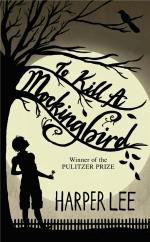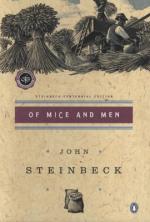September 25, 2019 | quinnt
Did you know that it is Banned Books Week? Held during the last week of September - this year from September 26 to October 2- Banned Books Week is a celebration of the freedom to read. It spotlights current and historical attempts to censor books in libraries and schools.
The American Library Association compiles lists of frequently challenged books. Visit their website to see which books are on those lists. Did you know that all of the classic books on the following list have been challenged at one time as well?
- Challenged in the Vernon Verona Sherill, NY School District (1980) as a "filthy, trashy novel."
- Challenged at the Santa Cruz, CA Schools (1995) because of its racial themes. Removed from the Southwood High School Library in Caddo Parish, LA (1995) because the book's language and content were objectionable.
Harper Lee's classic novel of a lawyer in the Deep South defending a black man charged with the rape of a white girl. One of the best-loved stories of all time, To Kill a Mockingbird has earned many distinctions since its original publication in 1960. It won the Pulitzer Prize, has been translated into more than forty languages, sold more than thirty million copies worldwide, and been made into an enormously popular movie. Most recently, librarians across the country gave the book the highest of honors by voting it the best novel of the twentieth century.
- Challenged in Greenville, SC (1977) by the Fourth Province of the Knights of the Ku Klux KIan; Vernon Verona Sherill, NY School District (1980); St. David, AZ (1981) and Tell City, IN (1982) due to "profanity and using God's name in vain."
- Challenged as a summer youth program reading assignment in Chattanooga, TN (1989) because "Steinbeck is known to have had an anti business attitude." In addition, "he was very questionable as to his patriotism."
Over seventy-five years since its first publication, Steinbeck's tale of commitment, loneliness, hope, and loss remains one of America's most widely read and taught novels. An unlikely pair, George and Lennie, two migrant workers in California during the Great Depression, grasp for their American Dream. They hustle work when they can, living a hand-to-mouth existence. For George and Lennie have a plan: to own an acre of land and a shack they can call their own. When they land jobs on a ranch in the Salinas Valley, the fulfillment of their dream seems to be within their grasp. But even George cannot guard Lennie from the provocations, nor predict the consequences of Lennie's unswerving obedience to the things George taught him.
- Removed from the open shelves of the Newport News, VA school library (1986) because of its "profanity and sexual references" and placed in a special section accessible only to students over the age of 18 or who have written permission from a parent.
- Banned in the Souderton, PA Area School District (1992) as appropriate reading for 10th graders because it is "smut."
Tells the story of two African-American sisters: Nettie, a missionary in Africa, and Celie, a child-wife living in the south, in the medium of their letters to each other and in Celie's case, the desperate letters she begins, "Dear God."
- Removed from required reading lists and library shelves in the Richmond County, GA. School District (1994) after a parent complained that passages from the book are "filthy and inappropriate."
- Removed from the St. Mary's County, MD schools' approved text list (1998) by the superintendent, overruling a faculty committee recommendation. Complainants referred to the novel as "filth," "trash," and "repulsive."
Toni Morrison's Song of Solomon, a novel of large beauty and power, creates a magical world out of four generations of black life in America, a world we enter on the day of the birth of Macon Dead, Jr. (known as Milkman), son of the richest black family in a mid-western town; the day on which the lonely insurance man, Robert Smith, poised in blue silk wings, attempts to fly from a steeple of the hospital, a black Icarus looking homeward...
We see Milkman growing up in his father's money-haunted, death-haunted house with his silent sisters and strangely passive mother, beginning to move outward--through his profound love and combat with his friend Guitar...through Guitar's mad and loving commitment to the secret avengers called the Seven Days...through Milkman's exotic, imprisoning affair with his love-blind cousin, Hagar...and through his unconscious apprenticeship to his mystical Aunt Pilate, who saved his life before he was born.
And we follow him as he strikes out alone; moving first toward adventure and then--as the unspoken truth about his family and his own buried heritage announces itself--toward an adventurous and crucial embrace of life.
- Removed because of profanity and sexual situations from the required reading curriculum of the Marysville, CA Joint Unified School District (1997). The school superintendent removed it to get it "out of the way so that we didn't have that polarization over a book."
- In 1963, a delegation of parents of high school students in Columbus, OH, asked the school board to ban the novel for being "anti-white" and "obscene." The school board refused the request.
The hero-narrator of The Catcher in the Rye is an ancient child of sixteen, a native New Yorker named Holden Caufield. Through circumstances that tend to preclude adult, secondhand description, he leaves his prep school in Pennsylvania and goes underground in New York City for three days.
- A Wisconsin survey revealed in 1963 that the John Birch Society had challenged the novel's use; it objected to the words "masses will revolt." In 1968, the New York State English Council's Committee on Defense Against Censorship conducted a comparable study in New York State English classrooms. Its findings identified the novel on its list of "problem books"; the reason cited was that "Orwell was a communist."
As ferociously fresh as it was more than a half century ago, this remarkable allegory of a downtrodden society of overworked, mistreated animals, and their quest to create a paradise of progress, justice, and equality is one of the most scathing satires ever published. As we witness the rise and bloody fall of the revolutionary animals, we begin to recognize the seeds of totalitarianism in the most idealistic organization; and in our most charismatic leaders, the souls of our cruelest oppressors.
- Challenged at the Berrian Springs, MI High School in classrooms and libraries (1988) because the novel is "vulgar, profane, and sexually explicit."
Right from the start, Bigger Thomas had been headed for jail. It could have been for assault or petty larceny; by chance, it was for murder and rape. Native Son tells the story of this young black man caught in a downward spiral after he kills a young white woman in a brief moment of panic.
Set in Chicago in the 1930s, Richard Wright's powerful novel is an unsparing reflection on the poverty and feelings of hopelessness experienced by people in inner cities across the country and of what it means to be black in America.






